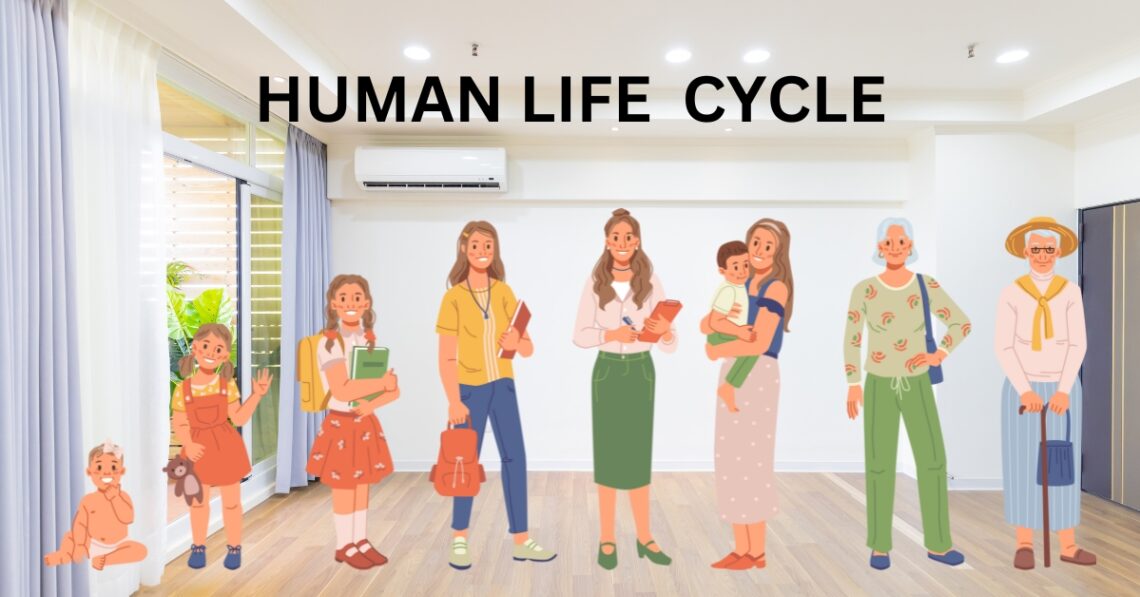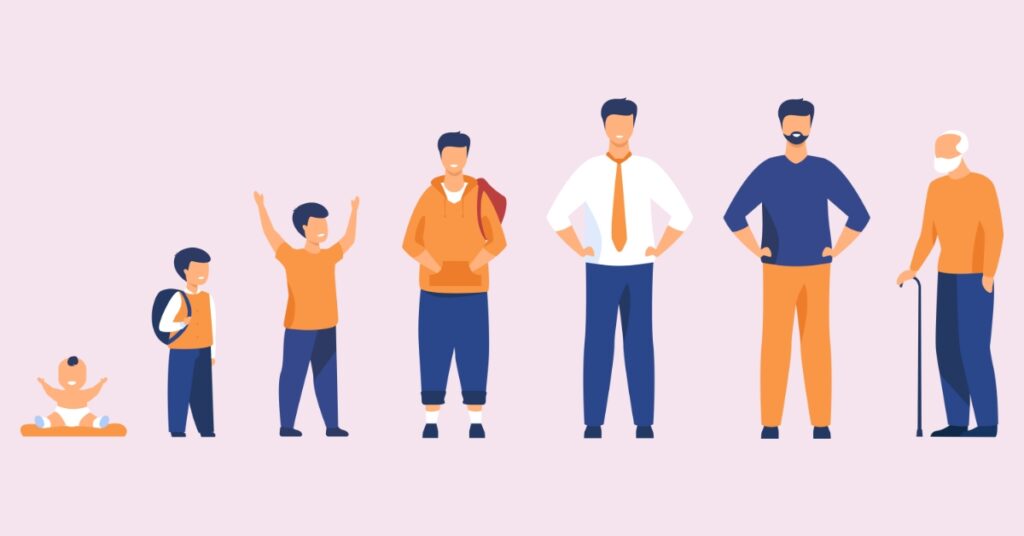
Deep Dive into the 8 Stages of Human Life
From Birth to Old Age: Navigating the 8 Stages of Human Life Cycle
Our journey of lifelong growth, shaped by our experiences, relationships, and biology, begins at birth and ends when we reach old age wisdom. This article explores the eight stages of human life, providing an overview of the psychological, physiological, and social transformations that occur throughout a person’s life from conception to old age. By being aware of these phases, we can respond to life’s changes with a heightened sense of awareness and gratitude for the special gifts that each stage has to offer.
- Infancy: Trust vs Mistrust
- Toddlerhood: Autonomy vs Shame and Doubt
- Preschool years: Initiative vs Guilt
- Early school years: Industry vs Inferiority
- Adolescence: Identity vs Role Confusion
- Young adulthood: Intimacy vs Isolation
- Middle adulthood: Generativity vs Stagnation/Self-absorption
- Late adulthood: Ego integrity vs Despair
Infancy: Trust vs Mistrust
I’m sure, most people adore kids, they are like bean-sized and just so adorable and this stage starts when they are just born until they are eighteen months old. The infant tends to build a trust or mistrust relationship with their caregivers at this stage, therefore it tends to be the most important one of all. An infant gains trust in those who are caring for them if their needs are met. Neglected or improperly cared for infants might instill mistrust in other people. Hope is the virtue of this stage. When trust is developed at this age, an infant comes to believe that someone will help them get through a challenging situation.
Toddlerhood: Autonomy vs Shame and Doubt
As babies grow into toddlers, they investigate a wide range of topics outside of socialization. They are picking up the skills necessary to eat on their own, walk, crawl, and express their wants. These new skills also bring new options. Do they seek their mother’s advice or do they leave her to explore the house? This phase starts when the toddler is 18 months old and continues till he is 3 years old. The toddler gains confidence and autonomy if their caretakers support and celebrate their independence. These children develop into self-sufficient individuals.
Preschool Years: Initiative vs Guilt
It happens when a youngster struggles with the Autonomy vs. Shame and Doubt crisis, usually between the ages of 3 and 5. The youngster should ideally have grown to feel independent and capable of making their judgments. Making decisions is more at this time. A new crisis for kids in the third stage of social development is initiative versus guilt. They acquire the virtue of purpose if they can pass this level. The consequences of these psychological crises may emerge through interactions with parents, other family members, and even other kids.

Early School Years: Industry vs Inferiority
This phase lasts from the time the child is five years old until they are twelve years old. At this point, the person starts to recognize their unique identity. If their teachers and friends help and encourage them in their academic or extracurricular activities, they are perceived as diligent or capable. If their teachers and friends help and encourage them in their academic or extracurricular activities, they are perceived as diligent or capable. When children lack the chance to develop into adults, with the ability to make decisions for themselves, or credit for their achievements, they can start to feel guilty. This might make them feel inadequate, which would be harmful to their confidence and sense of worth.
Adolescence: Identity vs Role Confusion
This developmental period gives rise to the term “identity crisis.” The person searches for their identity, as well as their priorities and ambitions, throughout this phase. Adolescents are likely to leave this period with a strong sense of self, as well as a sense of independence and control if they are allowed the flexibility to explore various roles and are supported in their discovery. Adolescents may become confused about their roles if they are confined, do not have the freedom to explore or find the process to be too stressful or exhausting.
Young adulthood: Intimacy vs Isolation
The young adults vary in age from 18 to 40. Those who can build relationships in this phase can feel close to one another; those who are unable to do so may feel isolated and alone. One of the pleasures of closeness is offering and receiving emotional support. Both physical health problems like high blood pressure and decreased immunity as well as mental health problems like melancholy and anxiety are made more likely by isolation. For someone who cannot manage a developmental stage, reaching the higher phases may be more challenging.
Middle adulthood: Generativity vs Stagnation
Middle adulthood included individuals of ages ranging from 40-65. When someone is generous, they parent or mentor the next generation and instill in them a sense of duty and concern for their education. If someone is sad or resentful, they could remain agitated and alone without doing anything constructive to society. To develop or nurture things that will outlive them, middle-aged folks often rear children or promote constructive reforms that benefit others during this period of life.
Late adulthood: Ego integrity vs Despair
Those 65 years of age and older are involved in this stage. These people display their wisdom and gracefully embrace aging if they are content with their lives and feel proud of what they have accomplished. People who feel they could have done better or who harbor regrets tend to lose hope. When the aging adult starts to confront the issue of his or her mortality, the integrity versus despair stage starts. Life events including retiring, losing a spouse, losing friends and acquaintances, being diagnosed with a terminal illness, and other changes to significant roles in life frequently cause this stage to begin.
Summing it Up:
The eight phases of the human life cycle offer a framework for comprehending how we evolve, but it’s crucial to keep in mind that this is only a rough guide, not a set course. Every person has a distinct journey that is shaped by their surroundings, heredity, and personal decisions. The diversity of these stages is what makes them beautiful. We can develop and discover purpose at every stage of life if we embrace continuous learning and personal development.
